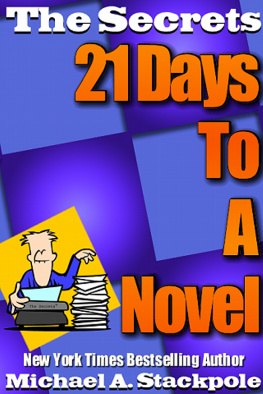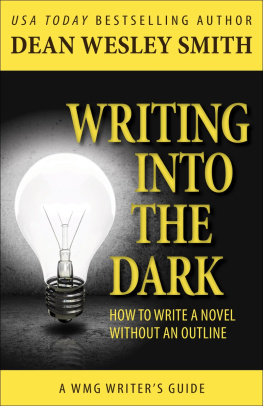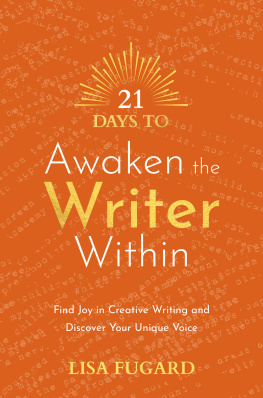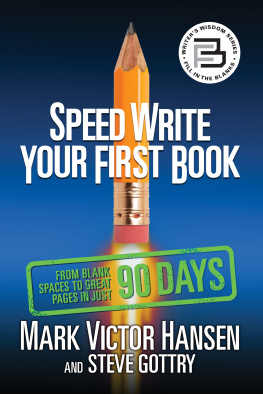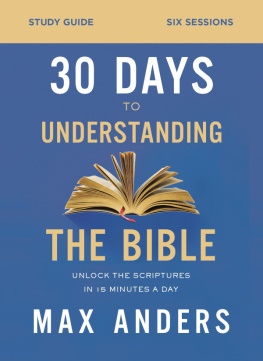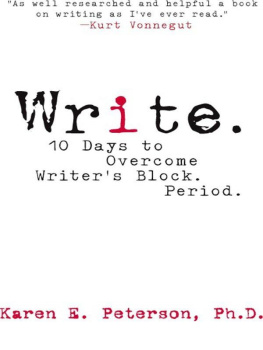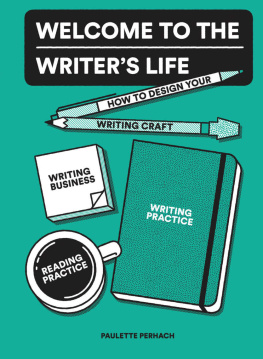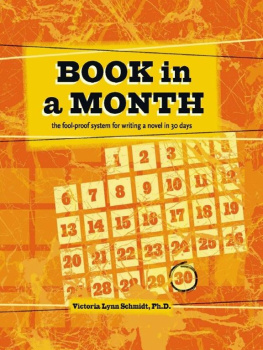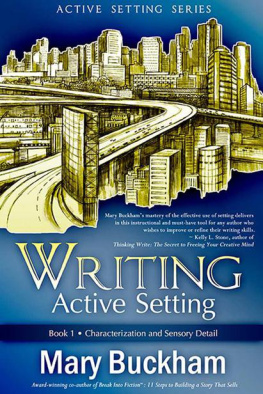Legends e-books by this author are
Talion: Revenant
Once a Hero
The Secrets Presents:
Twenty-one Days to a Novel
A Series of Exercises to prepare anyone to write a novel
By
Michael A. Stackpole
New York Times bestselling author of Rogue Squadron and I, Jedi
Stormwolf.com
2008 Michael A. Stackpole
This book is based on material originally generated for The Secrets podcast. The Secrets podcast is the audio companion to The Secrets newsletter for writers. For more information about The Secrets and Michael A. Stackpole, please visit Stormwolf.com .
The author can also be found in Second Life at Third Life Books. He holds a weekly chat session at Third Life Books, Third Life Furniture and Farpoint Media. Look for him in his guise as Noble Charron and say hello.
Introduction
Twenty-one Days to a Novel
This book is comprised of a series of exercises which, over a twenty-one day period, will have you well on your way to writing a novel. Writing a novel or short story is a highly individualist undertaking. It can truly be said that no two writers approach the task the same way. The exercises that follow touch upon all the aspects which must be considered when engaging in such a project.
I've chosen to present them in the following order and manner because this is the best way for a total neophyte to start in. The two critical components here are this:
1) You must write. If you just read through the book and never actually write anything, you're no closer to being a writer than someone who has read a flight manual is close to being a pilot. It's fine to just read the book over and put off actually engaging in the exercises, but unless you sit down and do them, it's not going to help your writing.
2) You must begin to think like a writer. That's really a tall order. To be a good writer you have to become a polymathan expert at so many things that you end up wondering how your head contains all the information without exploding. You have to develop an ear for dialogue, you have to read people and their relationships. You have to learn to ask "What if," and ride your imagination through to wherever it wants to go. And then you backtrack, pick out the useful nuggets, and work with them to shape a great story.
The exercises build one on another, but they do break down into Characterization (Days1-8), Dialogue(9-10), Physical Description (11 and 15), World Development (12-15), Conflict (16), Plotting (17-20) and Writing (21). There are lots of books written on each one of these points, and they certainly can be used as supplemental material. In addition, my writing newsletter, The Secrets, has a wealth of material that emphasizes all the various points and provides techniques to enhance what you're writing.
If you choose to zero in on a particular aspect of the program because you think you need to work on that area, please read a couple of days before the section you want to reference. This will put things in context. In fact, you would be best served to read the book up to that point without doing the exercises, then do them for the area where you need work.
This book is not exhaustive, so supplementary material is highly recommended. While you can draw a lot of insight from other "how to write" books, I heartily suggest you study other works (novels and short stories) for techniques other writers use. Figure out how they do things and figure out how to make them work for you. More writers have learned from others in this manner than have ever learned from how-to books. The simple fact is that some writers don't actually understand how they accomplish what they do, and your analysis of their techniques is going to make things work for you.
This book does beg the question, "Do I follow this series of exercises for all the books I do?" Not always in form, but definitely always in spirit. As you will see, some of the exercises deal with layering and lamination. There are times you go over points again and again to make them work. Consider it the mental equivalent of a chef combining ingredients in a bowl to make batter. It's the mixing process that creates something wonderful. Having been writing for as long as I have, I tend to do the mixing in a rather chaotic order.
But that's fine because once you've gone through this process you'll use the steps as a checklist in future work. When you find something that's causing trouble, you can refer back here, figure out what's not quite right, and push forward. You'll adapt the process into something that works for you. That's great. It means you're a writer.
And in twenty-one days, you'll be an even better one.
How to use this book
Each day's exercise is fully explained in the text. Read it over carefully and work through the exercises. It's best to produce hard copy for each day, so you have the material in hand to review as you progress.
A synopsis of each day's exercise is presented at the top of each section. This distills the points and makes for easy review for subsequent projects.
Day One: Five Little Sentences
Approx. 30 Minutes
Day One: Write a single sentence about a character in five areas of his life.
This exercise is where your novel will start. It's deceptively simple and easy to do. Don't be fooled into thinking that it's so easy that you don't need to do it. How you do today's exercise will color everything else you do from this point forward.
You're going to write five sentencesno more than a dozen words each about a character. You'll write one sentence each describing something about the character's circumstance in a particular area of life.
You can choose from any number of areas, but here's a list to get you started:
Romance
Job
Financial situation
Education
Religion
Health:
Mental
Emotional
Physical
Spiritual
Hobbies
The list could easily go on, and get into highly specialized subjects. You could choose, for example, what he thinks of professional sports. You could get more specific and focus him on the steroid issue, and focus yet further on whether or not any steroid-pumped records should be tossed from the record book.
While all of that would be good, remember one simple thing: if you start with a narrowly focused character, you're going to be telling a narrowly focused story. In general, it is better to work from the broad down into the specific. Even if your story is about this guy arguing with friends about professional sports, the fact that you know something about him in so many different areas will be a huge help.
Likewise, when you're writing these sentences down, think about the comments as being valid at a point of change in the character's life. Maybe these are the "before" statements about him. All stories begin at a point of change in a character's life, the author Orson Scott Card has noted, so take advantage of that knowledge to get your character started. Hint at a direction in which things are going to go and you're off to the races.
Here's an example of a sentence about someone's physical health: Harry never thought he'd beat alcohol, then Alex entered his life.
That simple sentence suggests a lot about Harry. Let's break it down and see how much information we have here:
Harry's a drunk. He's out of control, knows it, and despairs about ever being able to dry out. He's in a world of hurt, but he's at a point of change in his life, and that change is something he attributes to Alex.
There's a lot going on in that single sentence, and it really opens things up for further exploration.
Who's Alex? Does it matter? Is Alex his child, or a friend, or a brother? Maybe Alex is a girl he's sweet on. Could be a pet, some stray dog or cat that's now his responsibility. (Okay, probably not a cat, since cats just make you want to drink
Next page
